Lasha can show he is best of all time – by winning in Paris AND Los Angeles, says triple champion Kakhi
If Lasha Talakhadze wins a third straight Olympic gold medal in Paris on August 10 the debate will begin earnest: is he the greatest weightlifter of all time?
Lasha, as Talakhadze is known throughout the weightlifting world, will become the first man weighing 100kg-plus to achieve the feat if, as expected, he holds off challengers from Armenia, Bahrain, Iran and elsewhere.
He won at Rio 2016 and Tokyo 2020, he tops the Paris rankings by 10kg, he holds the record for the heaviest lift in the sport’s history, 267kg, and he has set countless world records on the way to winning 14 world and European titles.
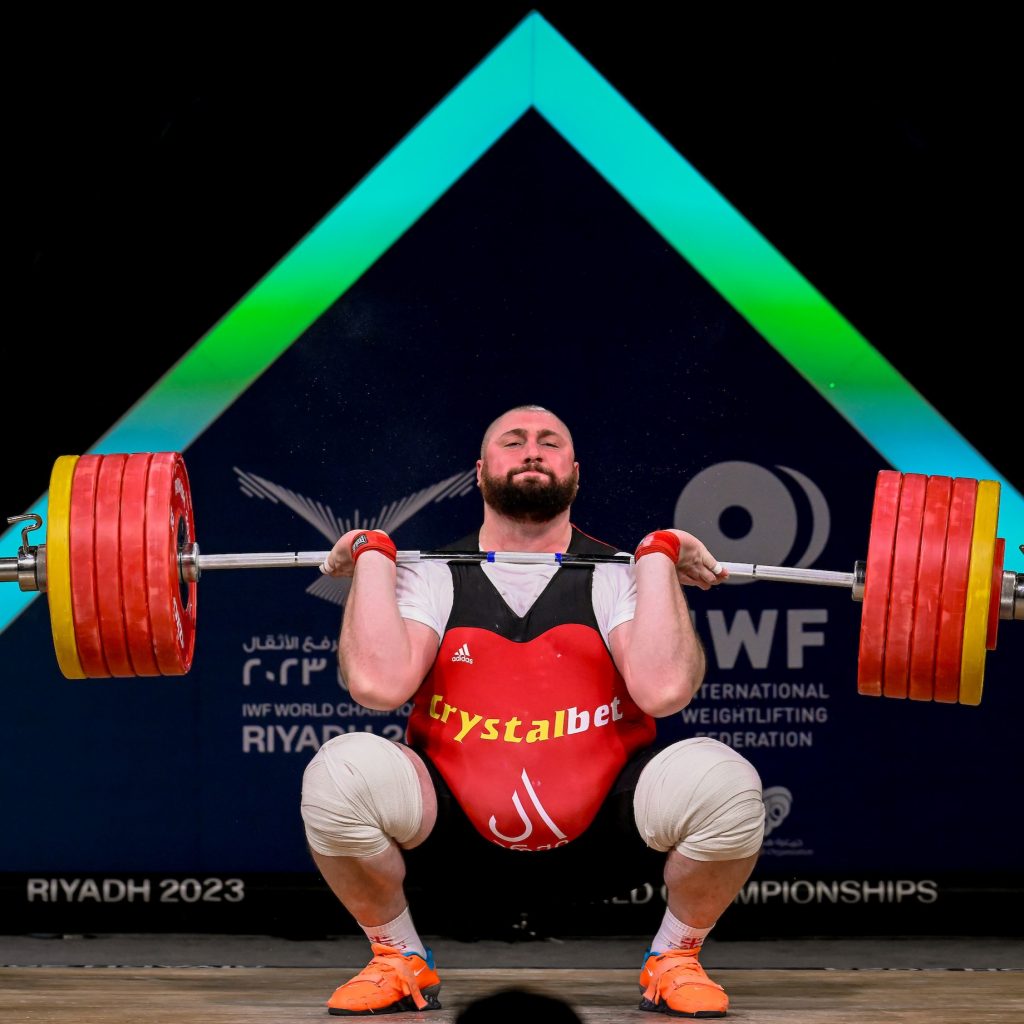 Lasha Talakhadze (GEO)
Lasha Talakhadze (GEO)
But there are other contenders for the “Greatest of all Time” accolade. They include the four men who have won three Olympic gold medals. Among others is the Soviet Union super-heavyweight Leonid Taranenko, who weighed far less than Lasha when he made the biggest lift of the 20th century, 266kg.
The way for Lasha to put the argument beyond doubt is by winning in Paris and extending his career to win a fourth Olympic gold in Los Angeles in 2028.
That is the view of Lasha’s fellow Georgian friend, mentor and national federation president Kakhi Kakhiashvili, who is one of those four men to have won Olympic gold three times. The others are IWF vice-president Pyrros Dimas, who also won a bronze to end his stellar career for Greece, and two lifters who achieved the feat for Turkey, Halil Mutlu and the late Naim Suleymanoglu.
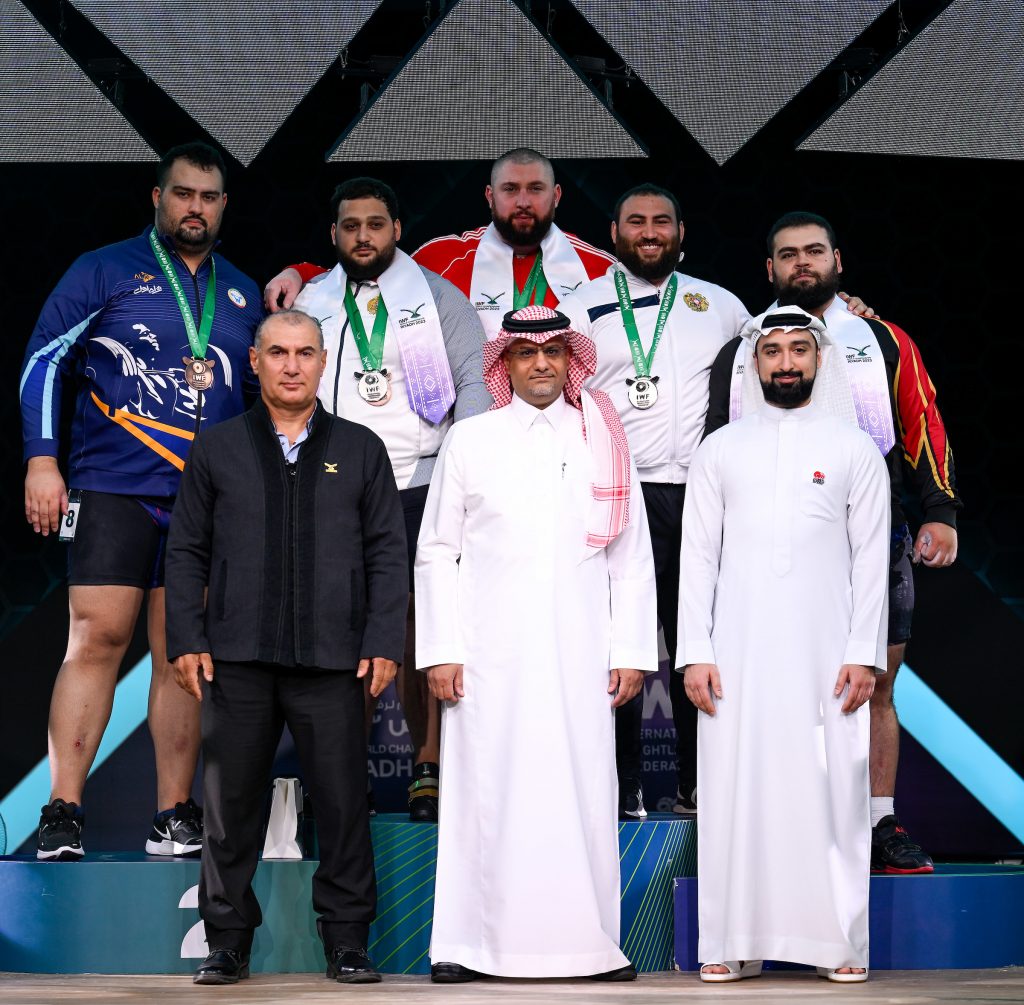 Kakhi Kakhiashvili (front row, left) always close to Lasha (back row, centre)
Kakhi Kakhiashvili (front row, left) always close to Lasha (back row, centre)
The four won their medals between 1988 and 2004. Their ages, when they won for a third time, ranged from 28 to 31.
“There are four three-times Olympic champions in weightlifting. Should Lasha claim his third title he would join the club and probably be named the best weightlifter of all time already based on the combination of all of his achievements,” said Kakhiashvili, who like Lasha is known within the sport simply by his forename.
“Should we all be blessed with Lasha’s fourth Olympic gold medal he would definitely get the title of all-time best and keep it for a very long time. It is my dream for Lasha to celebrate his fourth Olympic gold.”
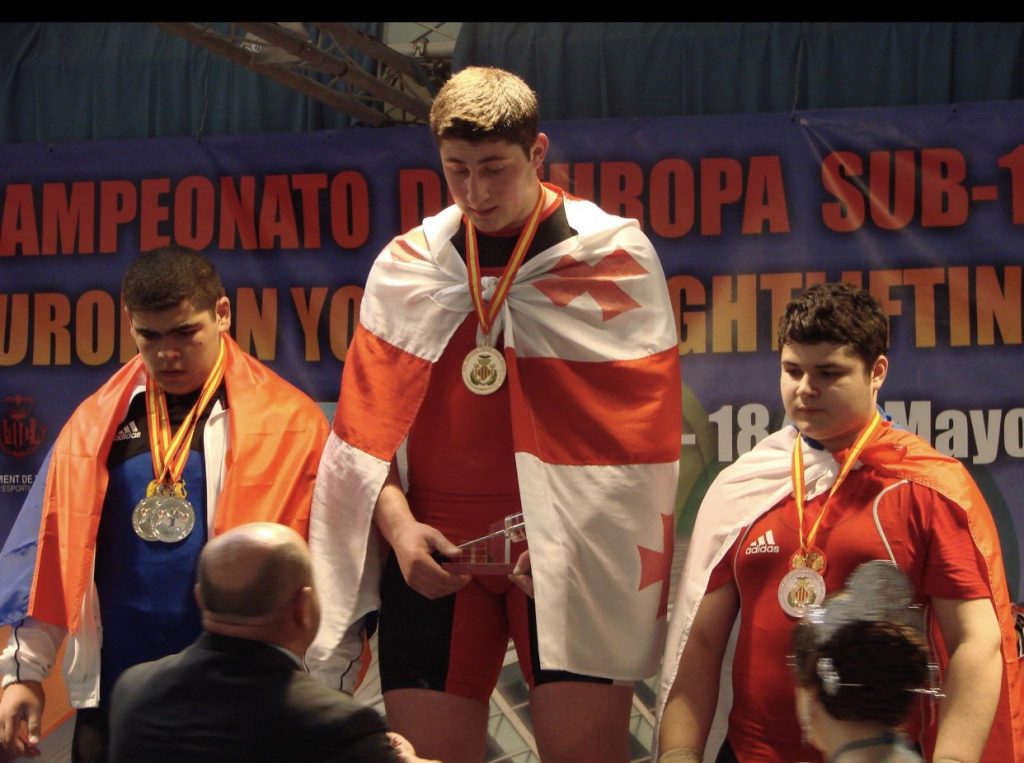 Lasha already winning… at the age of 15!
Lasha already winning… at the age of 15!
Lasha will be 31 in October, two months before this year’s World Championships in Bahrain. He has had knee problems over the past year and has not lifted in competition since winning his seventh world title in Saudi Arabia last September.
Immediately after that victory, Lasha’s 18th in an unbeaten run that began in 2015, Georgia’s national coach Giorgi Asanidze said, “The others are closing in on Lasha. The standard he showed today will not be enough any more.”
Kakhi said, “It is much more difficult for a heavyweight athlete to keep in shape for a long period of time. It makes Lasha’s consistent performance so much appreciated.
“Lasha keeps developing his potential and keeps evolving in his achievements. In my opinion, there are several factors leading to this. There is the competitive environment. The pressure coming from his rival heavyweight athletes is a motivation for Lasha to constantly improve.
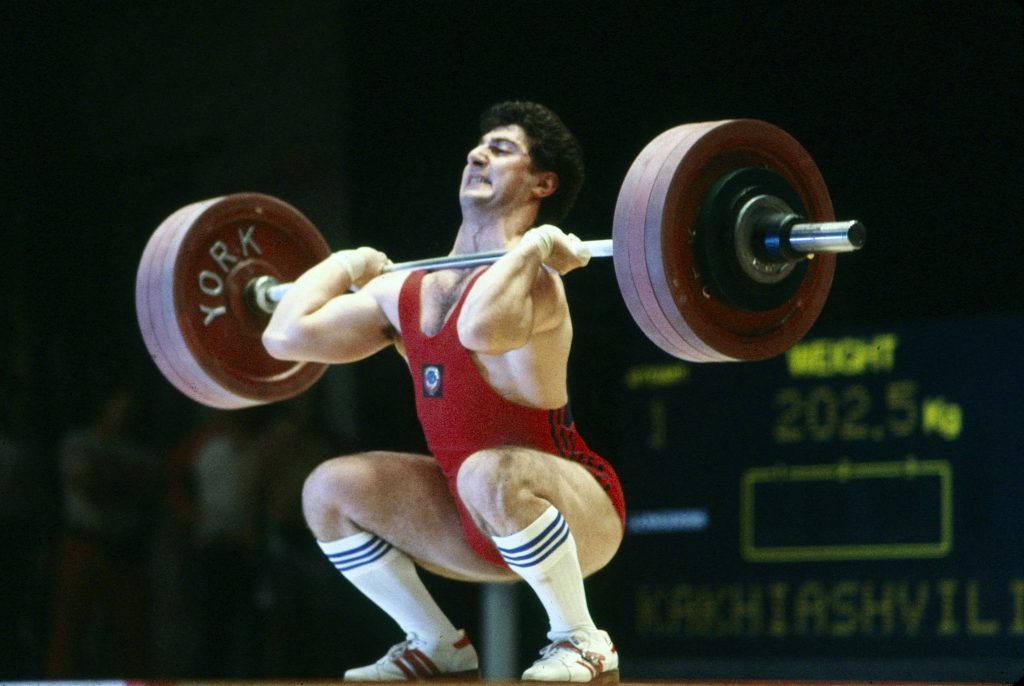 Kakhi Kakhiashvili in his glory days
Kakhi Kakhiashvili in his glory days
“He has had healthy training conditions and relations within the mother federation, plus arguably the very best specialist – Giorgi Asanidze (Olympic champion at 85kg in 2004 and long-time national coach of Georgia). All this, with Lasha’s immense talent and his desire to win, cumulatively contribute to the consistent, long-term improvement of his performance.”
Comparing athletes from different eras is never straightforward. What does Kakhi think about the concept of a “greatest of all time”?
“There is a Georgian expression that goes: ‘It’s not the kings that rule, but time.’ Those who are top weightlifters are and will always be popular, especially when in their top condition.
“It is Lasha today. In the past it was athletes from Turkey, the Soviet Union, Poland, China, Iran, Greece, the United States and other nations that had great champions.
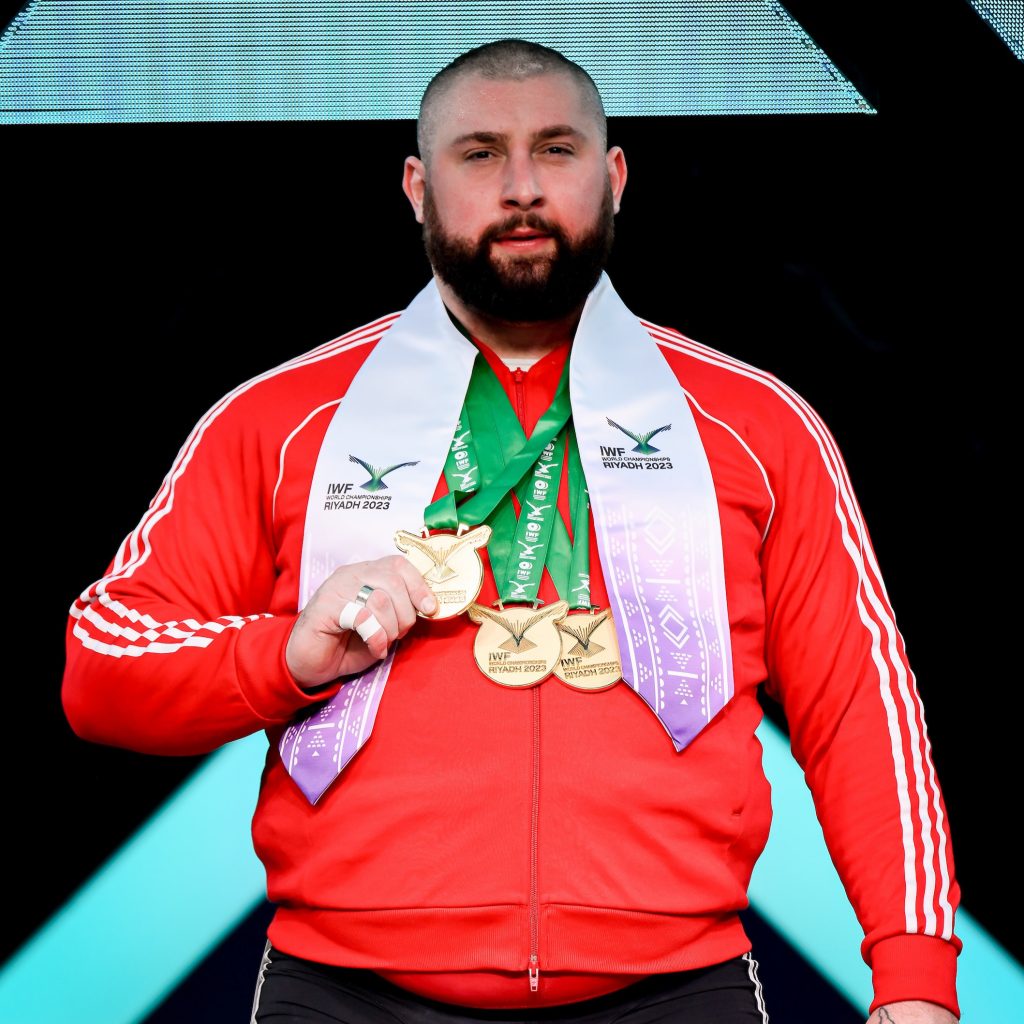 Lasha at the 2023 IWF World Championships
Lasha at the 2023 IWF World Championships
“In the future we will inevitably see new faces representing the evolution of talent in weightlifting, just as we have enjoyed Pele, Maradona, Ronaldo, Messi, Beckenbauer and so on in football.”
Asked if he thought there had been, during his lifetime, any other super-heavyweights capable of winning three Olympic golds, Kakhi named a few. None had the longevity and consistent fitness of Lasha.
“I would mention the American Paul Anderson, Alexander Kurlovich from Belarus, the Iranians Hossein Rezazadeh and Behdad Salimi, Vasily Alekseyev from the Soviet Union – and of course Lasha. All of them were/are capable of achieving the title of three times Olympic gold medallist.”
Alekseyev was 34 when he won his second Olympic gold in 1976 – the age Lasha will be in 2028. There were plenty of champions in their early thirties last century, but none since 1992, and nobody older than 34 has ever won gold in the heaviest men’s weight class.
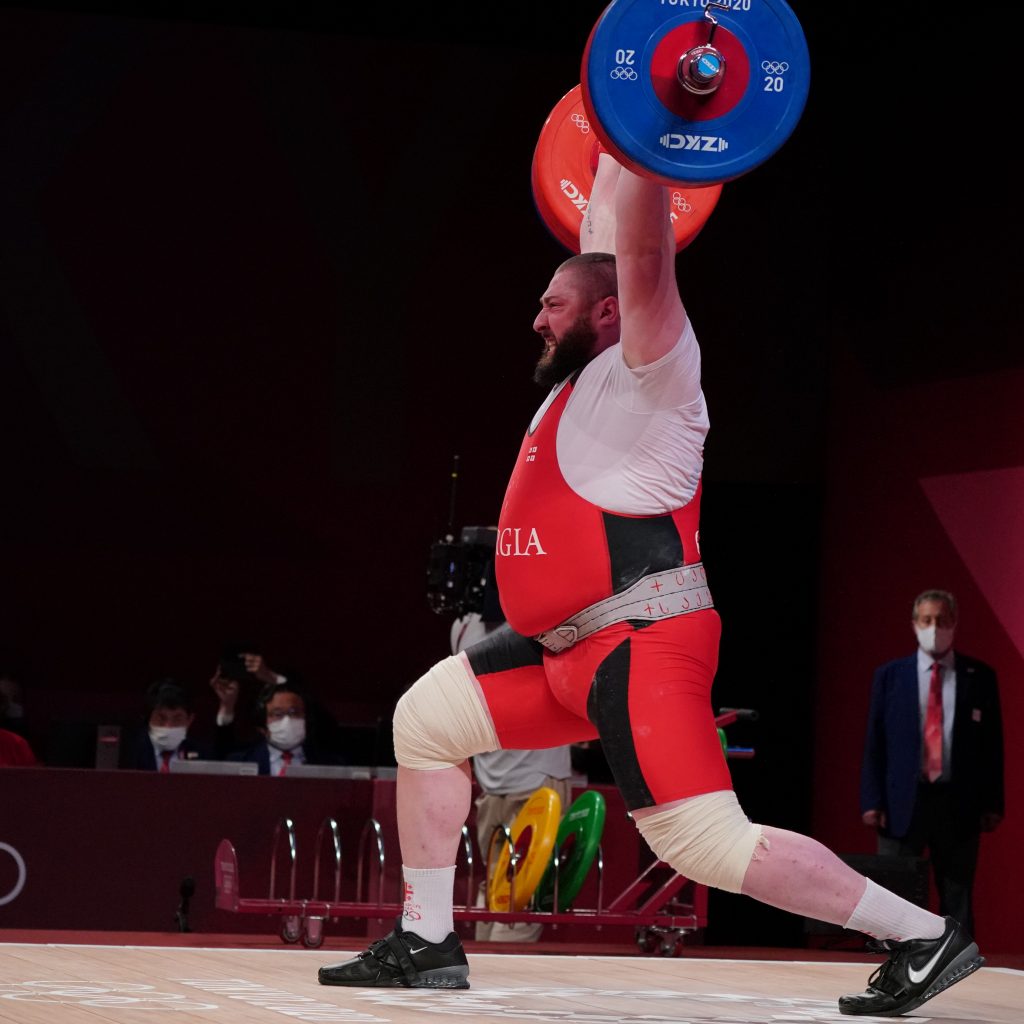 Lifting for the gold at the Olympics in Tokyo
Lifting for the gold at the Olympics in Tokyo
“Lasha’s example and his achievements, similar to the effect of other great athletes, contribute to the development of our sport as well as being a strong motivator to each and every weightlifter,” said Kakhi.
“I am proud that Lasha is a member of my team, someone who has lifted more than anyone else on the planet. I am proud of myself too, lifting 145.75kg above my body weight of 89.25kg. Lasha and me, we share all-time best results.”
Kakhi made that lift – the highest ever above body weight – with a clean and jerk of 235kg to win his first Olympic gold in Barcelona in 1992 for the Unified Team, comprising 15 former Soviet states after the collapse of the Soviet Union.
His head coach, the Russian double Olympic champion Vasily Alekseyev, did not believe he would make the winning lift and, Kakhi said, “There were cynical comments behind my back that I would not get the barbell up to my knees.”
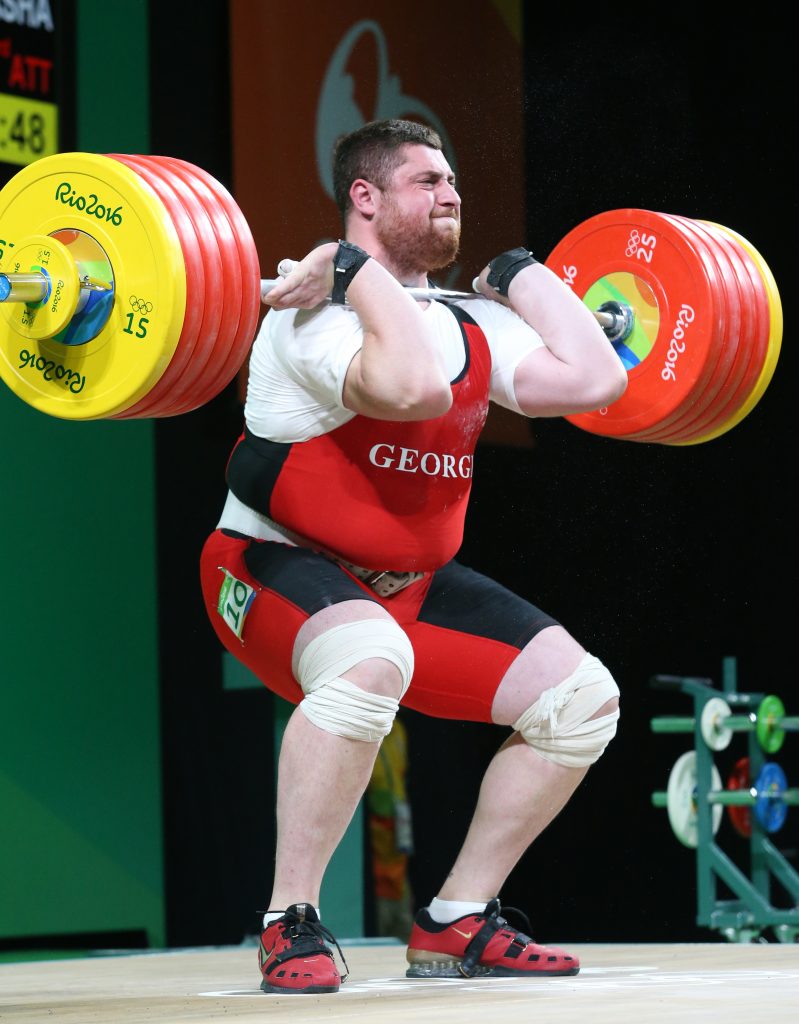 Lasha was also successful at the Rio 2016 Games
Lasha was also successful at the Rio 2016 Games
Kakhi switched to Greece, his mother’s homeland, because of hardship and poor training conditions in Georgia. Having won at 90kg for the Unified Team, he was Olympic champion for Greece at 99kg in Atlanta and 94kg in Sydney. He bowed out at Athens 2004, where he missed all three clean and jerks.
About 10 years ago Georgian weightlifting was in trouble. It owed the IWF a six-figure sum in fines for doping after four athletes tested positive in 2013. Georgia did not send a team to the World Championships that year and was not close to winning any medals in 2014.
“I took charge of a federation that was in danger of being disqualified,” Kakhi said.
“My personal relationship with Lasha began when I was running for president in 2015, when I was presenting my vision and development programme to the federation, and to Lasha and the other athletes.”
Kakhi had known of Lasha before then, of course. “It was my coach, Vano Grikurov, who was the chief coach of the Georgian national team at that time, who first informed me about Lasha’s potential.
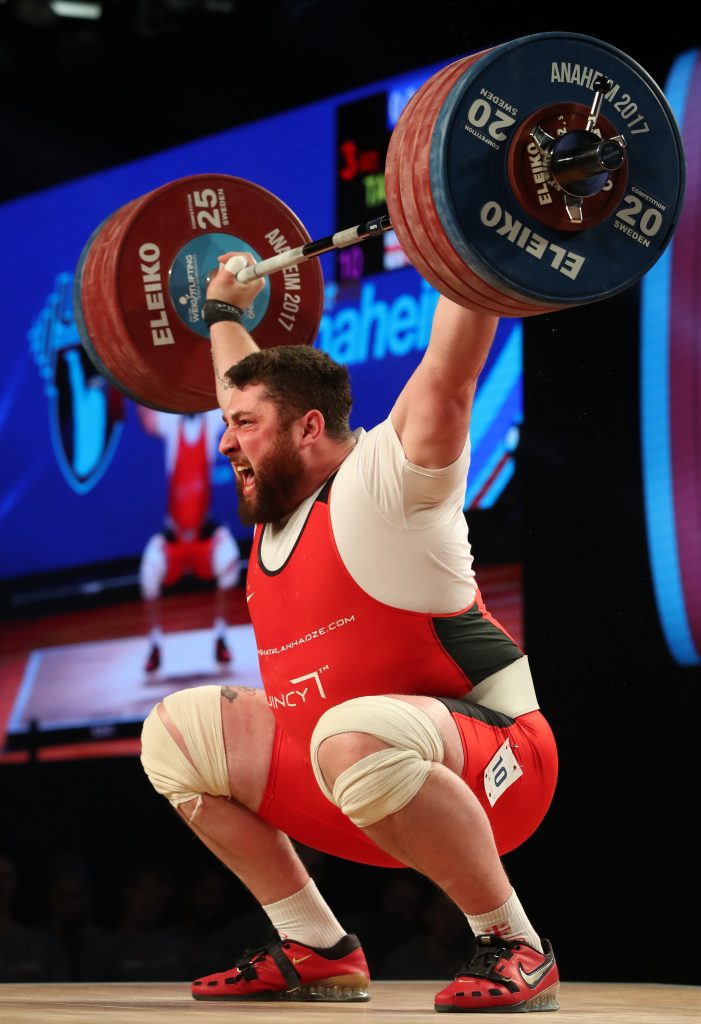
At the 2017 IWF World Championships
“Also, I knew Koba Talakhadze, Lasha’s father. We used to train and compete together, we are from the same generation. Lasha’s father has a great talent too but his life-career took a different path. I would say that Lasha has reclaimed whatever his father missed to achieve, thus, we have the strongest athlete on the planet.
“As president of the National Federation, together with the chief coach Giorgi Asanidze, I set my goal – to always support athletes in their good and low times. My mission is to create an environment where our athletes can achieve better results than we did in the past.
“Later, when Lasha was facing some difficult times, I stood by him twice. I am glad that I was able to source the means of covering the sanction fees ($100,000 fine after those four doping violations) which enabled not only Lasha but the entire federation to continue functioning. The second time was when I supported Lasha with my private resources to allow him to maintain his dream and training routine.”
What will we see from Lasha in Paris?
“I am looking to see Lasha in his best shape for Paris and beyond towards Los Angeles in 2028,” said Kakhi. “I completely believe in him, even if we have never had such a long gap between competitions, 328 days.
“I couldn’t really say if we’re going to see an astronomical 500kg in Paris, because winning the third title is the utmost goal. But if Lasha continues his training routine, I am positive that one day we will be celebrating Lasha’s 500 total.
“The entire Georgian sports community, the Ministry of Sports, National Olympic Committee, the Government of Georgia, the National Weightlifting Federation, me, chief coach Giorgi Asanidze, personal coach Avto Ghakhokidze, Lasha’s family, doctors and friends pray and dream for Lasha achieving these great results.
“We all are doing our best to support him on his road to Paris and then to LA.”
By Brian Oliver










